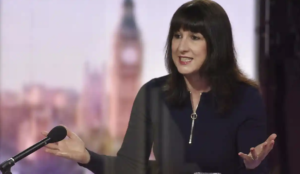Economists from Capital Economics predict that Labour could benefit from a £16 billion spending boost if it wins the upcoming General Election, thanks to updated forecasts from the Office for Budget Responsibility (OBR).
This potential fiscal headroom is nearly double the £8.9 billion announced in the March Budget.
Rachel Reeves, Labour’s shadow chancellor, could use this revised forecast to either reverse some planned spending restraints or address the freeze on personal tax thresholds, though likely not both simultaneously.
The OBR’s improved borrowing forecast, revised downward by about £5 billion annually over the next five years, is attributed to increased tax revenues driven by recent wage growth. This shift provides the next government with an opportunity to reassess its fiscal strategies.
If Capital Economics’ predictions hold, the next chancellor might have a fiscal headroom as large as £27 billion, assuming further-than-expected interest rate cuts and higher-than-anticipated tax revenues from elevated house and equity prices. However, the OBR’s forecast could vary significantly, presenting a range of scenarios from a £13 billion deficit to a £38 billion surplus, equating to 1.4% of GDP.
Deputy chief UK economist Ruth Gregory noted, “Overall, as things stand, we suspect the next government may be handed a bit more fiscal space by the OBR. But it probably won’t have enough fiscal headroom to do everything it wants all at once.”
Gregory emphasized that economic developments and the OBR’s forecasts will significantly influence the available fiscal headroom, alongside the new government’s willingness to raise taxes to fund additional spending beyond what the fiscal space allows.
The potential fiscal flexibility comes amid discussions on how to best utilize the projected surplus to balance spending and tax cuts, reflecting broader economic conditions and strategic priorities of the next administration.

